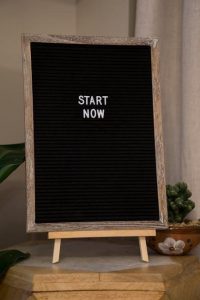
Therapy Jenga Questions is an engaging, versatile tool combining physical play with meaningful dialogue. Each block features a thoughtfully crafted question to spark reflection, emotional expression, and connection, making it ideal for therapists, counselors, and educators. The Therapy Jenga Questions PDF provides a convenient resource for printing and customizing questions, tailored to various therapeutic needs and age groups, fostering deeper insights and rapport-building in a fun, interactive way.
Overview of Therapy Jenga
Therapy Jenga is a creative, interactive tool that combines the classic Jenga game with thought-provoking questions. Each block is labeled with a question designed to encourage self-reflection, emotional expression, and open conversation. This activity is widely used in therapeutic settings, including individual, group, and family therapy, to help clients explore their feelings and experiences. The Therapy Jenga Questions PDF offers a ready-to-use collection of questions, making it easy for therapists to implement this engaging and effective technique in their practice.
Importance of Questions in Therapy
Questions are a cornerstone of therapy, guiding clients to explore emotions, experiences, and thoughts. They foster self-awareness, understanding, and personal growth. In Therapy Jenga, questions are carefully designed to create a safe space for clients to articulate their feelings and reflections. This interactive approach helps individuals address challenges, gain insights, and build rapport with therapists. The structured yet engaging nature of these questions makes them an invaluable tool for facilitating meaningful conversations and promoting therapeutic progress.
What is Therapy Jenga Questions PDF?
The Therapy Jenga Questions PDF is a downloadable resource containing a curated list of therapeutic questions designed for use with Jenga blocks. It offers a portable and customizable tool for therapists, counselors, and educators to facilitate meaningful conversations and self-reflection. The PDF includes questions tailored for various age groups and therapeutic needs, making it adaptable for different settings. By printing and applying these questions to Jenga blocks, professionals can create an engaging and effective therapeutic activity that fosters emotional expression and connection.
Origins and Development
The Therapy Jenga Questions PDF is an innovative adaptation of the classic Jenga game, incorporating therapeutic questions to encourage meaningful dialogue and emotional expression, evolving into a valuable tool for professionals.
Creation of Therapy Jenga
Therapy Jenga was created by adapting the classic Jenga game with therapeutic questions, fostering emotional expression and dialogue. Questions are printed from a PDF, cut, and attached to Jenga blocks using mod-podge, creating a tool for therapists and counselors. The questions cover various themes, including emotional reflection and lighthearted fun, designed for diverse age groups. This innovative approach transforms a simple game into a meaningful therapeutic activity, promoting self-reflection and connection.
Evolution of the Concept
The concept of Therapy Jenga has evolved from a simple game to a therapeutic tool, with the PDF offering customizable questions for various needs. Initially, questions were handwritten on blocks, but the PDF format allows easy printing and modification. This adaptability has led to its use in individual, group, and family therapy, addressing diverse emotional and psychological requirements. The evolution highlights its flexibility and effectiveness in modern therapeutic practices, making it a popular choice for counselors seeking innovative engagement strategies.
Popularity and Usage Today
Therapy Jenga Questions has gained widespread popularity as a versatile therapeutic tool, particularly through its PDF format. Therapists, counselors, and educators widely use it in individual and group settings to foster emotional expression and connection. Its customizable questions cater to diverse needs, making it adaptable for adults, teens, and children. The game’s engaging nature and ability to address complex emotions have made it a go-to resource for building rapport and encouraging self-reflection in both therapeutic and casual environments, enhancing its appeal and practicality in modern mental health practices.

Structure of the Game
The Therapy Jenga Questions PDF provides numbered questions printed on Jenga blocks. Players stack and remove blocks, answering corresponding questions, fostering engagement and meaningful conversation through strategic gameplay.
How to Play Therapy Jenga
To play Therapy Jenga, begin by stacking the numbered blocks. Players take turns removing a block, answering the corresponding question from the Therapy Jenga Questions PDF. Each question encourages reflection, emotional expression, or lighthearted fun. The game progresses like traditional Jenga, with the goal of keeping the tower standing while fostering meaningful conversations. Players can pass once or twice, revealing insights into their thoughts and feelings. This interactive approach creates a safe, engaging environment for dialogue and connection.
Rules and Modifications
Players take turns removing blocks, answering the question on the drawn piece using the Therapy Jenga Questions PDF. Each block is numbered, and questions correspond to these numbers. Rules can be modified to suit the session’s goals, such as allowing one or two passes per game, which reveals insights into clients’ avoidance patterns. For added flexibility, questions can be tailored to specific needs, and non-verbal responses or group discussions can be incorporated to enhance engagement and therapeutic outcomes. This adaptability makes the game versatile for diverse settings and client needs.
Numbering and Assigning Questions
Each Jenga block is numbered, and questions from the Therapy Jenga Questions PDF are assigned based on these numbers. Players draw a block, read the corresponding question, and respond. The PDF includes a variety of questions, from fun to therapeutic, ensuring engagement for all ages. Questions are thoughtfully categorized to address emotions, relationships, and personal growth. This structured yet flexible system allows for easy customization, making it adaptable to individual or group therapy sessions and ensuring meaningful interactions. The numbering ensures clarity and organization for therapists and participants alike.
Types of Questions
The Therapy Jenga Questions PDF includes emotional and reflective prompts, fun lighthearted inquiries, and a mix of both, ensuring engagement for all ages and therapeutic needs.
Emotional and Reflective Questions
Emotional and reflective questions in the Therapy Jenga Questions PDF are designed to help individuals explore their feelings, thoughts, and experiences. These prompts encourage self-reflection and deeper emotional expression, such as “What’s your biggest fear?” or “What are you most passionate about?” They also address past experiences, like “What was the highlight of your week?” or “What is something that causes you stress?” These questions create a safe space for clients to articulate their emotions, fostering personal growth and understanding.
Fun and Lighthearted Questions
Fun and lighthearted questions in the Therapy Jenga Questions PDF add a playful touch to sessions, helping clients relax and engage. Examples include “What’s your favorite type of music and why?” or “If you could choose another name for yourself, what would it be?” These questions create a casual atmosphere, encouraging laughter and connection. They balance deeper reflections with enjoyable discussions, making therapy sessions dynamic and accessible for all ages. The PDF offers a mix of such questions to keep interactions fresh and entertaining.
Mix of Question Types
The Therapy Jenga Questions PDF offers a diverse mix of question types, blending emotional, reflective, and fun prompts. This variety ensures sessions remain engaging and cater to different client needs. While some questions encourage deep self-reflection, others bring light-hearted moments, fostering a balanced therapeutic experience. The mix is particularly effective for group settings, allowing participants to connect on multiple levels. This versatility makes the PDF a valuable resource for therapists aiming to create dynamic and inclusive interactions for all ages.

Therapeutic Benefits
Therapy Jenga Questions PDF fosters self-reflection, emotional expression, and connection. The structured yet playful approach helps clients explore feelings, develop insights, and build trust, enhancing therapeutic outcomes effectively.
Encouraging Self-Reflection
Therapy Jenga Questions PDF is designed to promote deep self-reflection through thoughtfully crafted prompts. Each question encourages clients to explore their thoughts, emotions, and experiences, fostering personal growth. By addressing topics like fears, passions, and regrets, individuals gain insights into their behaviors and beliefs. The game creates a safe space for introspection, helping clients identify strengths, challenges, and goals. This reflective process enhances self-awareness, empowering individuals to make meaningful changes in their lives. The interactive nature of Jenga makes reflection engaging and non-intimidating, fostering a deeper understanding of oneself.
Fostering Emotional Expression
Therapy Jenga Questions PDF includes prompts designed to help individuals articulate and explore their emotions. By addressing feelings such as fear, joy, or stress, clients can express themselves openly. The game’s interactive nature creates a safe, non-threatening environment for emotional release. Questions like, “What makes you angry?” or “When was the last time you cried?” encourage honest dialogue, fostering emotional awareness and understanding. This tool is particularly effective in therapy sessions, helping clients process and communicate their emotions effectively. It bridges the gap between play and emotional healing, making it a powerful therapeutic resource.
Building Rapport in Therapy
Therapy Jenga Questions PDF helps establish trust and connection between clients and therapists. The game’s engaging nature reduces tension, allowing individuals to share thoughts and feelings in a relaxed setting. Questions like, “What are you most passionate about?” or “What job did you want as a kid?” encourage meaningful conversations. By fostering open dialogue and shared experiences, Therapy Jenga builds rapport, helping clients feel comfortable and understood. This tool is especially valuable for therapists seeking to create a strong therapeutic alliance and deepen client engagement.
Use in Therapy Sessions
Therapy Jenga Questions PDF is a versatile tool for fostering engagement and dialogue in therapy. It helps clients open up in a fun, no-pressure way, promoting meaningful conversations and connection.
Individual Therapy
In individual therapy, Therapy Jenga Questions PDF offers a creative, no-pressure way to explore thoughts and emotions. Clients engage physically by removing blocks, each marked with a question, fostering self-reflection and openness. The tool helps therapists build rapport, understand anxieties, and address personal struggles. Questions are tailored to encourage deep insights, making each session unique and meaningful. This approach allows clients to express themselves comfortably, promoting emotional growth and understanding in a fun, interactive manner.
Group Therapy
Therapy Jenga Questions PDF is a dynamic tool for group therapy, fostering collaboration and open dialogue. Each block’s question encourages participants to share thoughts and feelings, promoting trust and connection. The game’s interactive nature helps break the ice, making it easier for individuals to engage with others. It’s particularly effective for exploring group dynamics, teamwork, and emotional expression. The versatile questions cater to diverse needs, allowing therapists to address various themes while creating a safe, engaging environment for collective growth and understanding.
Family Therapy
Therapy Jenga Questions PDF is a powerful tool for family therapy, fostering communication and understanding among family members. The game encourages sharing and reflection, helping to address dynamics, roles, and relationships. Questions are designed to explore memories, challenges, and goals, promoting empathy and connection. It’s adaptable for all ages, making it an inclusive activity for families. The PDF’s customizable questions allow therapists to tailor sessions to specific needs, enhancing bonding and collaboration in a fun, engaging way.

Creating Custom Questions
Handling Challenging Situations
Therapists can manage difficult moments by allowing passes, providing emotional support, and guiding conversations with empathy, ensuring a safe space for expression and connection.
Designing Questions for Specific Needs
Creating custom questions for Therapy Jenga involves tailoring prompts to address specific therapeutic goals or client demographics. For children, questions might focus on emotions or friendships, while teens may benefit from topics like self-esteem or stress management. Adults could explore deeper issues like relationships or career satisfaction. Questions should be clear, relevant, and age-appropriate to ensure engagement and meaningful dialogue. This customization allows therapists to target specific needs, enhancing the game’s therapeutic impact and fostering personalized growth.
Examples of Custom Questions
Examples of custom questions in the Therapy Jenga Questions PDF include prompts like, “What’s your biggest fear and why?” or “What makes you angry?” For children, questions might focus on emotions, such as, “Describe a time when you felt scared.” Teen-specific questions could address self-esteem or stress, while adult prompts might explore relationships or career satisfaction. These examples illustrate how questions can be tailored to specific needs, ensuring relevance and engagement for diverse clients.
Tips for Crafting Effective Questions
When creating custom questions for Therapy Jenga, ensure they are clear, concise, and relevant to the client’s needs. Tailor them to age and therapeutic goals, using open-ended prompts to encourage deeper reflection. Balance fun and serious questions to maintain engagement. Test questions beforehand to avoid ambiguity and ensure they align with your therapeutic objectives. Keep language simple and accessible, fostering a safe and non-threatening environment for meaningful dialogue and emotional exploration.

Examples of Therapy Jenga Questions
Questions like, “What’s your biggest fear?” or “What makes you happy?” encourage self-reflection. Others, such as “What’s your favorite hobby?” or “What’s one thing you’re proud of?” foster light-hearted conversations, creating a balanced and engaging experience for participants of all ages.
Sample Questions for Adults
Sample questions for adults include: “What’s your biggest fear and why?” “What are you most passionate about?” “What was the highlight of your week?” “What job did you want as a kid?” “What’s your biggest regret?” These questions encourage deep reflection and meaningful conversations, helping adults explore their emotions, goals, and experiences in a therapeutic setting.
Sample Questions for Teens
Sample questions for teens include: “What’s your favorite type of music and why?” “What makes you angry?” “What’s something that causes you stress?” “What are two goals you’ll accomplish?” “Identify two positive words that describe you.” “Share a time you were helpful to someone.” “Describe a time you felt scared.” These questions are designed to engage teens, encouraging them to express emotions, reflect on experiences, and build self-awareness in a comfortable and interactive way during therapy sessions.
Sample Questions for Children
Sample questions for children include: “What do you like to do when you’re happy?” “Who is someone you trust?” “What’s something you’re good at?” “What makes you feel safe?” “If you could be any animal, why?” “What’s your favorite thing about school?” These questions are simple, engaging, and age-appropriate, helping children express their emotions and thoughts. They foster self-awareness and connection, making therapy sessions enjoyable and impactful for young participants.

How to Implement Therapy Jenga
Print the Therapy Jenga Questions PDF, cut each question, and securely attach them to Jenga blocks using mod-podge. This setup encourages engaging, meaningful conversations during therapy sessions.
Preparing the Jenga Blocks
Begin by printing the Therapy Jenga Questions PDF, which includes a variety of thoughtfully designed prompts. Cut each question individually or in strips to fit the Jenga blocks. Apply a thin layer of mod-podge or adhesive to secure the questions onto the wooden pieces, ensuring they are centered and readable. Allow the adhesive to dry completely before use. For durability, consider laminating the questions before attaching them. This preparation ensures the game is ready for meaningful and engaging therapy sessions.
Facilitating the Game
Start by numbering the Jenga blocks and assigning corresponding questions from the PDF. Players take turns removing a block, reading the question aloud, and sharing their response. Encourage open dialogue and active listening. For younger participants, consider simplifying the rules or allowing optional passes. The game’s interactive nature fosters engagement and reflection, making it an effective tool for building rapport and exploring emotions in both individual and group therapy settings. Adapt the pace to suit the group’s comfort level for optimal therapeutic benefits.
When emotionally charged questions arise, allow participants to pass or skip, providing insight into their hesitations. Encourage open dialogue and validate feelings to create a safe space. If a participant struggles, gently guide them to reflect without pressure. The game’s flexibility helps navigate tough moments, ensuring therapeutic benefits while maintaining engagement. By addressing challenges with empathy and understanding, you foster trust and meaningful connections, turning potential setbacks into opportunities for growth and deeper self-awareness.
Resources and Downloads
The Therapy Jenga Questions PDF offers a convenient collection of printable questions, mini-flashcards, and customizable prompts for various therapeutic needs. Available on platforms like TPT, it supports easy preparation and implementation, ensuring accessibility for therapists, educators, and counselors to enhance sessions with engaging, thought-provoking activities.
Where to Find Therapy Jenga Questions PDF
The Therapy Jenga Questions PDF is widely available on platforms like Teachers Pay Teachers (TPT) and Pinterest. It includes a variety of questions tailored for different age groups and therapeutic needs. The PDF offers printable question cards, mini-flashcards, and customizable prompts, making it easy for therapists and educators to prepare and implement the game. Many creators share these resources online, ensuring accessibility for those looking to enhance their therapy sessions with engaging and thought-provoking activities.
How to Print and Use the PDF
To use the Therapy Jenga Questions PDF, start by printing the document on standard paper. Cut out the individual question cards and apply them to Jenga blocks using glue, mod-podge, or laminating for durability. Once dry, the blocks are ready for play. Players remove a block, read the question aloud, and respond, fostering meaningful conversations. This method ensures the questions are securely attached and reusable for future sessions, making it a practical tool for therapists and educators;
Alternative Resources
Beyond the Therapy Jenga Questions PDF, additional resources are available online, such as pre-made question sets on Teachers Pay Teachers (TPT) and Pinterest. These platforms offer customizable templates, printable question cards, and creative ideas for adapting the game to specific needs. Many resources include a mix of emotional, reflective, and fun questions, catering to adults, teens, and children. These alternatives provide flexibility for therapists and educators seeking diverse or specialized content to enhance their sessions.
Therapy Jenga Questions PDF offers a unique, engaging way to foster self-reflection and connection. Its versatility and accessibility make it a valuable tool for therapists and educators, encouraging meaningful conversations and emotional growth across diverse settings and age groups. Give it a try to enhance your therapeutic practices!
Final Thoughts on Therapy Jenga
Therapy Jenga Questions PDF is a powerful, adaptable resource for fostering meaningful conversations and emotional growth. By combining physical interaction with reflective questions, it creates a safe, engaging space for self-expression. Its versatility makes it suitable for individual, group, and family settings, helping to build rapport and encourage deeper introspection. Whether for therapy or educational purposes, this tool offers a unique way to connect and grow, making it a valuable addition to any therapeutic practice.
Encouragement to Try the Activity
Therapy Jenga Questions offers a unique, engaging way to foster connection and self-reflection. Its simplicity and adaptability make it accessible for all ages and settings, from individual to group therapy. By combining play with meaningful dialogue, it creates a relaxed environment for clients to open up. Encourage your clients to embrace this activity—it’s a fun, non-intimidating way to explore emotions, build trust, and promote personal growth. The results are often profound, making it a worthwhile addition to your therapeutic toolkit.






